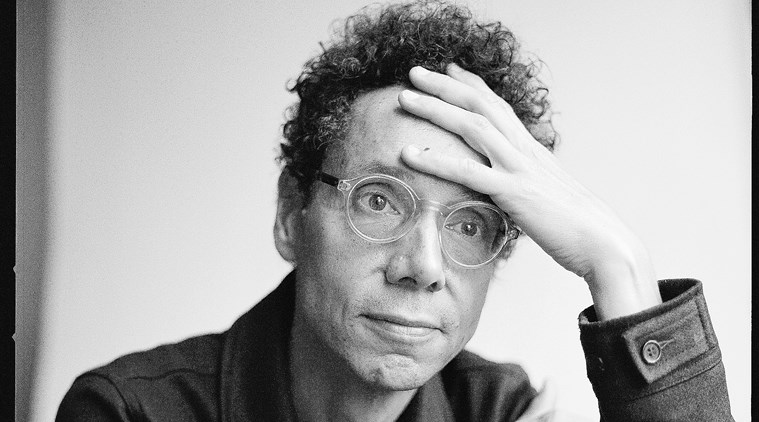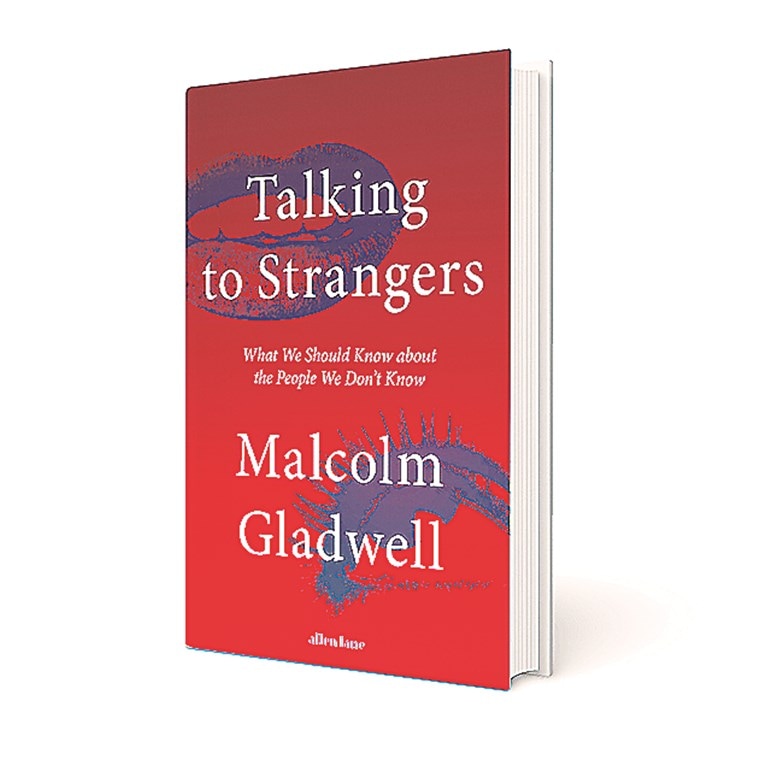- India
- International
We have to be more cautious in the ways we make sense of others: Malcolm Gladwell
Malcolm Gladwell, 56, on empathy, the fallouts of a breakdown in communication and his new book
 Malcolm Gladwell talks about how podcasting helped him tell more personal stories. (Courtesy: Penguin Random House)
Malcolm Gladwell talks about how podcasting helped him tell more personal stories. (Courtesy: Penguin Random House)
Talking to Strangers (Penguin Random House, Rs 595) is about communication breakdowns of various kinds. Do you believe people today are more suspicious of each other than ever before?
The premise of the book is that we are very good at making sense of people we are close to. That is because we have enormous amounts of experience in dealing with them. But the strategies we use in dealing with people we know do not work with strangers. That’s the type of problem we have to confront: What do I do when I don’t know you, have no experience of dealing with you and don’t know your culture as well?
What led you to write this book?
More and more, we are having to deal with people we don’t know. If we look at the broad span of human history, our dealings have overwhelmingly been with people we know a lot about. And, now, we are thrust into a situation where most of our interactions are with strangers. The interaction we are having now, for example, would not have happened even some decades ago. So, it’s a novel situation after a million years of human history.
We live in a globalised world; the internet is based on trust. But you seem to be talking of a trust deficit.
There is a trust deficit in specific areas. Like politics. Politics in certain countries have become divisive. But it is more important to realise that, fundamentally, we are more trusting than ever before. A lot that happens on the web, for example, is beautiful and productive. It has made things more efficient than ever before. These interactions are overwhelmingly based on trust — portals like Uber and Airbnb are based on trust. When I buy something online, I am relying on trust. That’s a huge leap from going to a store where I can see and hold the product physically and take it home with me. Today, you can buy something from an entity that is hundreds of miles away and trust that it will be delivered to you. That’s an amazing transformation.

But there is also the argument that the internet has amplified divisive tendencies. It has amplified hatred amongst certain communities.
There is no transformative technology that doesn’t have a downside. The mistake we made, I think, was simply in pretending that the internet was going to do positive things. What we are discovering right now is that the enormous benefits that come with the internet have a cost. But I am not alarmed by the discovery.
You have, sometimes, been criticised for overemphasising our failure to communicate, at the cost of the social and political aspects of problems. Racism, for example.
But I must say the level of racism today is, historically, at an all-time low. We forget that even 40 years ago, apartheid was in place in South Africa. African Americans in the United States were denied all kinds of civil rights. We have got better and better in this respect.
 Talking to Strangers is to be more humble and cautious in the ways we make sense of others, says Malcolm Gladwell.
Talking to Strangers is to be more humble and cautious in the ways we make sense of others, says Malcolm Gladwell.
You do stress that privilege plays a important part in social behaviour.
Yes. It’s a story that I begin the book with — the story of Sandra Bland. It’s important to recognise that the police officer was in a privileged position over her. He represented authority, he was a big man and had a gun. This asymmetry in many ways made it difficult for the two of them to communicate effectively. Bland had no way of correcting the officer when he believes that she is dangerous.
What explains our failure to communicate? Education, social milieu, power hierarchies?
It’s not necessarily about education or the specifics of individual encounters. We evolved as human beings to trust some people. Trusting people has advantages over not trusting them. That is why we form relationships and participate in society. That works really well with people we know, but we get into trouble with those we don’t. The crucial thing to understand is that our occasional failures to understand strangers — particularly being deceived by them — is only a small price to pay for something wonderful we have evolved into.
Have we shown any inclination to learn from our failures?
I suppose you could say that my book is an attempt to help us learn from our failures. In writing this book, I was surprised at how little awareness people have about how bad they are at reading strangers. We think we are good at it. So, at times, we do not feel the need to reflect about the ways in which we interact with strangers. The case of Amanda Knox, which I discuss in the book, for example. Knox (an American exchange student in Italy) was cleared of murdering her roommate in Italy. But she was charged, in the first place, because her demeanour did not conform to notions of how blameless people should behave. It’s an example of how the system can get things wrong.
What were your formative influences?
I began my career as a newspaper journalist, which is extraordinarily good training for anyone who wants to write books because it forces you to interact with large numbers of people and many different parts of society. Then, I think, in large parts of my career, I have been an outsider to the world I was living in. I was born in England, raised in Canada and am now living in the US. Being an outsider to the culture you are living in, gives you an advantage in observing human behaviour. It makes you ask different questions. If you were to come to the US and walk around New York City with me, you would ask questions very different from mine. And, your questions would be much more useful than mine because I am in familiar territory. There are real advantages to someone who comes to a new world with a different perspective.
What have been your academic and literary influences?
All my books have been inspired by the works of the American psychologist Richard Nisbett, who has always argued for the role situation and environment have in shaping behaviour. Another big influence would be the American writer Michael Lewis, who, I think, is the greatest storyteller of my generation. Reading him has taught me a lot about how to tell stories in effective and powerful ways.
And the influences from the environment you grew up in?
I am the son of a mathematician and a psychotherapist. So, you could say both sides of the human brain are represented in my background. My writing is clinical and emotional at the same time.
You are also a podcaster. Do podcasting and writing influence each other?
They do very much. The fact that I began writing this book after I began podcasting had a big influence on how I wrote it. Podcasting encourages you to be more emotional, to tell more personal stories. It also made me do the audiobook very differently. I did it as a podcast. Instead of reading the book into the microphone, I used as much of the interview tapes I could. I used my experience in audio storytelling.
Underpinning most of your works is also a deep sense of what is right and what is wrong.
Yes, it would be correct to say there is a moral strain in some of my writings. Because these books are, in some ways, trying to answer the question, how can we become better people in the world, how can we communicate better, how can we succeed better. For instance, the advice in Talking to Strangers is to be more humble and cautious in the ways we make sense of others. We could be better by pausing and reflecting before jumping to conclusions.
Would you say that this holds in the political realm as well?
I’ve always been reluctant to talk about politics. It is a much more divisive territory. But, yes, I am talking about all
human encounters, including political encounters.
You once came out in support of a playwright who had plagiarised some of your writing.’
I think at times, writers are overly sensitive about borrowing. Here was someone who had taken some of my work and used them in an entirely new context to create a work of art. I didn’t see why I should object. People taking our work and using it to create something new — that’s a dream of every writer.
What are you working on now?
I am preparing myself for the next season of my podcast, Revisionist History. It’s 10 episodes a year and each episode re-examines a historical event and asks if we got our understanding of it right the first time.
Apr 19: Latest News
- 01
- 02
- 03
- 04
- 05






































